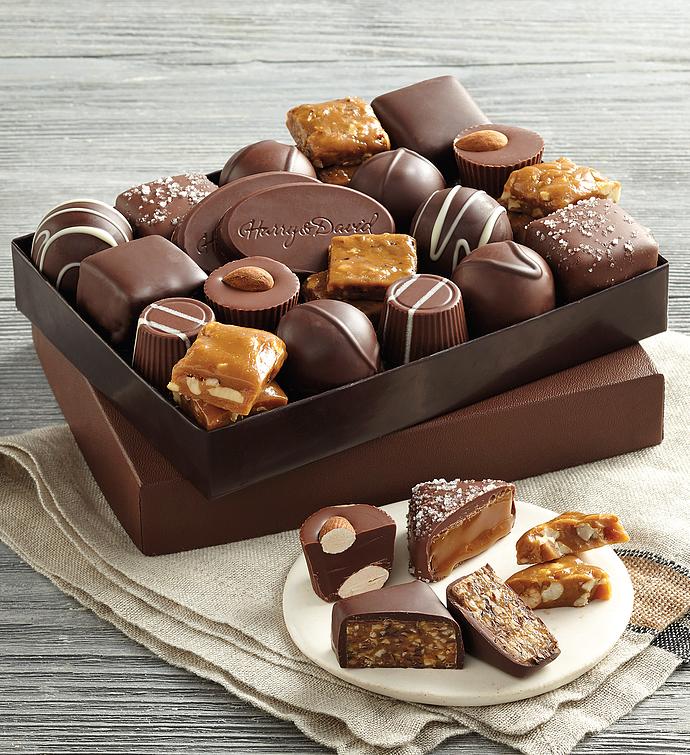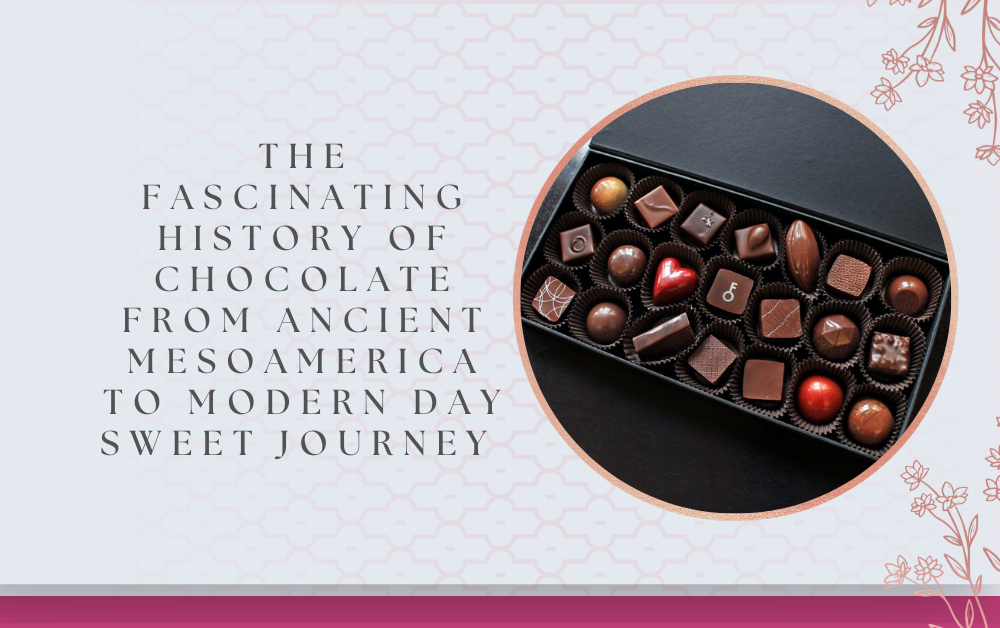Introduction
Chocolate is more than just a delicious treat; it holds a significant place in celebrations and traditions across the globe. From festive occasions to cultural rituals, chocolate has been used to mark special moments and bring joy to people of all ages. Its universal appeal and versatility make it a perfect addition to any celebration, whether it’s a holiday, a wedding, or a personal milestone. This article will explore the diverse ways chocolate is incorporated into celebrations around the world, highlighting its cultural importance and the unique traditions it inspires.
Chocolate in Western Holidays
In Western cultures, chocolate plays a central role in many holiday celebrations. One of the most notable examples is Easter, where chocolate eggs and bunnies are a beloved part of the festivities. The tradition of giving chocolate eggs dates back to the 19th century, symbolizing new life and rebirth. Today, Easter egg hunts and chocolate-filled baskets are eagerly anticipated by children and adults alike, adding a sweet touch to the holiday.
Christmas is another occasion where chocolate takes center stage. Advent calendars filled with chocolate treats help countdown the days to Christmas, bringing daily joy throughout December. Chocolate coins, often wrapped in gold foil, are given as gifts, and luxurious chocolate assortments are shared with family and friends. The rich, comforting flavors of chocolate add warmth and cheer to the holiday season.
Valentine’s Day is perhaps the most romantic of all chocolate-centered celebrations. The tradition of giving chocolate on Valentine’s Day began in the 19th century and has since become a universal symbol of love and affection. Heart-shaped boxes filled with decadent luxury chocolates are exchanged between lovers, and chocolate desserts are often enjoyed during intimate dinners. The association of chocolate with love and romance makes it an enduring favorite for this special day.
Chocolate in Latin American Traditions
In Latin America, the historical and cultural significance of chocolate is deeply rooted, dating back to the ancient civilizations of the Maya and Aztec. Chocolate is not only enjoyed as a sweet treat but also holds ceremonial and symbolic importance.
In Mexico, one of the most notable celebrations involving chocolate is Día de los Muertos, or the Day of the Dead. This holiday, celebrated on November 1st and 2nd, honors deceased loved ones with elaborate altars, or ofrendas, which often include chocolate offerings. Traditional Mexican hot chocolate, made with cinnamon and spices, is enjoyed during this time, connecting modern festivities with ancient rituals.
In Ecuador, chocolate plays a role in the Festival of Fanesca, a culinary celebration held during Holy Week. While the main dish is a hearty soup, chocolate is often included in desserts and beverages that accompany the meal. This festival highlights the rich agricultural heritage of the region, where some of the world’s finest cacao is grown.

Chocolate in European Festivals
Europe has a long and rich history with chocolate, and this is reflected in its many festivals and celebrations. In Belgium, known for its high-quality chocolate, the Salon du Chocolat is an annual event that celebrates all things chocolate. Held in various cities, this festival features chocolate tastings, demonstrations by master chocolatiers, and extravagant chocolate sculptures. It is a paradise for chocolate lovers and showcases Belgium’s proud chocolate-making tradition.
In Switzerland, another country famed for its chocolate, the Swiss Chocolate Festival attracts visitors from around the world. This event includes chocolate-making workshops, tastings, and tours of chocolate factories. Swiss chocolate is celebrated for its smooth texture and rich flavor, and the festival is a testament to the nation’s dedication to chocolate craftsmanship.
In Italy, chocolate is a key ingredient in many desserts enjoyed during celebrations. Tiramisu, a popular dessert made with layers of coffee-soaked ladyfingers and mascarpone cheese, is often topped with a dusting of cocoa powder. During Easter, Italians enjoy Colomba di Pasqua, a dove-shaped cake that is sometimes filled with chocolate chips or covered in chocolate glaze. These desserts highlight the integral role of chocolate in Italian festive cuisine.
Chocolate in Asian Celebrations
In Asia, chocolate is becoming increasingly popular in various celebrations and traditions, blending with local customs to create unique cultural expressions. In Japan, Valentine’s Day has a distinctive twist, with women giving chocolates to men. There are two types of chocolates given: “giri-choco” (obligation chocolate) for colleagues and acquaintances, and “honmei-choco” (true feeling chocolate) for romantic interests. A month later, on White Day, men reciprocate with gifts, often including chocolate.
In South Korea, chocolate is a central part of “Pepero Day,” celebrated on November 11th. Named after the popular chocolate-covered cookie stick, Pepero, this day involves giving and receiving these treats as a symbol of affection and friendship. The choice of the date (11/11) is significant as it resembles four Pepero sticks, adding a playful element to the celebration.
In India, chocolate is increasingly being incorporated into traditional celebrations such as Diwali, the Festival of Lights. While sweets like laddoos and barfis are traditionally exchanged, chocolate gifts are becoming popular, especially among the younger generation. Chocolates add a modern twist to the festival, symbolizing sweetness and prosperity.
Chocolate in African Celebrations
Africa, particularly West Africa, is the largest producer of cacao, the key ingredient in chocolate. While chocolate consumption is not as prevalent in traditional African celebrations, it is slowly gaining popularity, especially in urban areas.
In Ghana, one of the leading cacao-producing countries, National Chocolate Day is celebrated on February 14th, coinciding with Valentine’s Day. This day was established to promote the consumption of locally produced chocolate and to support the local cocoa industry. Events include chocolate tastings, exhibitions, and educational programs about the health benefits of chocolate.
In South Africa, chocolate is enjoyed during various festivals and public holidays, such as Heritage Day. Known as “Braai Day,” this holiday celebrates South African culture and heritage, with barbecues (braais) being a central part of the festivities. Chocolate desserts, such as chocolate malva pudding, are often served as a sweet conclusion to the meal.
| Region | Celebration | Role of Chocolate |
|---|---|---|
| Western Holidays | Easter, Christmas, Valentine’s Day | Chocolate eggs, bunnies, Advent calendars, heart-shaped chocolates |
| Latin American Traditions | Día de los Muertos, Festival of Fanesca | Chocolate offerings on altars, traditional hot chocolate, chocolate in festival dishes |
| European Festivals | Salon du Chocolat, Swiss Chocolate Festival | Chocolate tastings, demonstrations, traditional desserts like tiramisu and Colomba |
| Asian Celebrations | Valentine’s Day (Japan), Pepero Day (Korea) | Women give chocolates to men, exchange of chocolate-covered cookie sticks |
| African Celebrations | National Chocolate Day (Ghana), Heritage Day | Promote local chocolate consumption, chocolate desserts like malva pudding |
Conclusion
The role of chocolate in celebrations and traditions around the world highlights its universal appeal and cultural significance. From ancient rituals to modern festivities, chocolate continues to bring joy and sweetness to special occasions. Its versatility allows it to be adapted to various customs, making it a cherished part of celebrations across different cultures. Understanding the importance of chocolate in these traditions enriches our appreciation for this beloved treat and connects us to a shared global heritage. Whether enjoyed as a symbol of love, prosperity, or simply as a delightful indulgence, chocolate remains an integral part of how we celebrate life’s special moments.
Note :- To Read More Articles Visit on- kinkedpress


